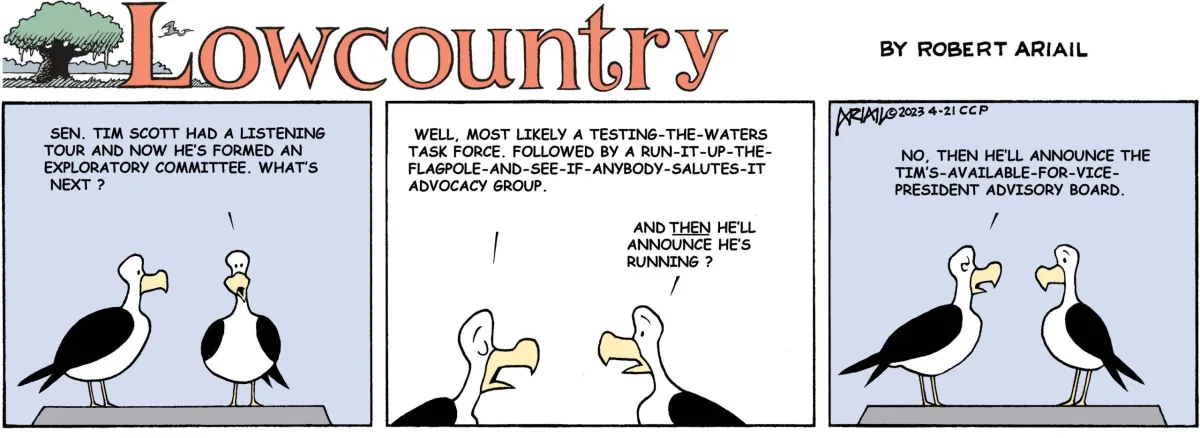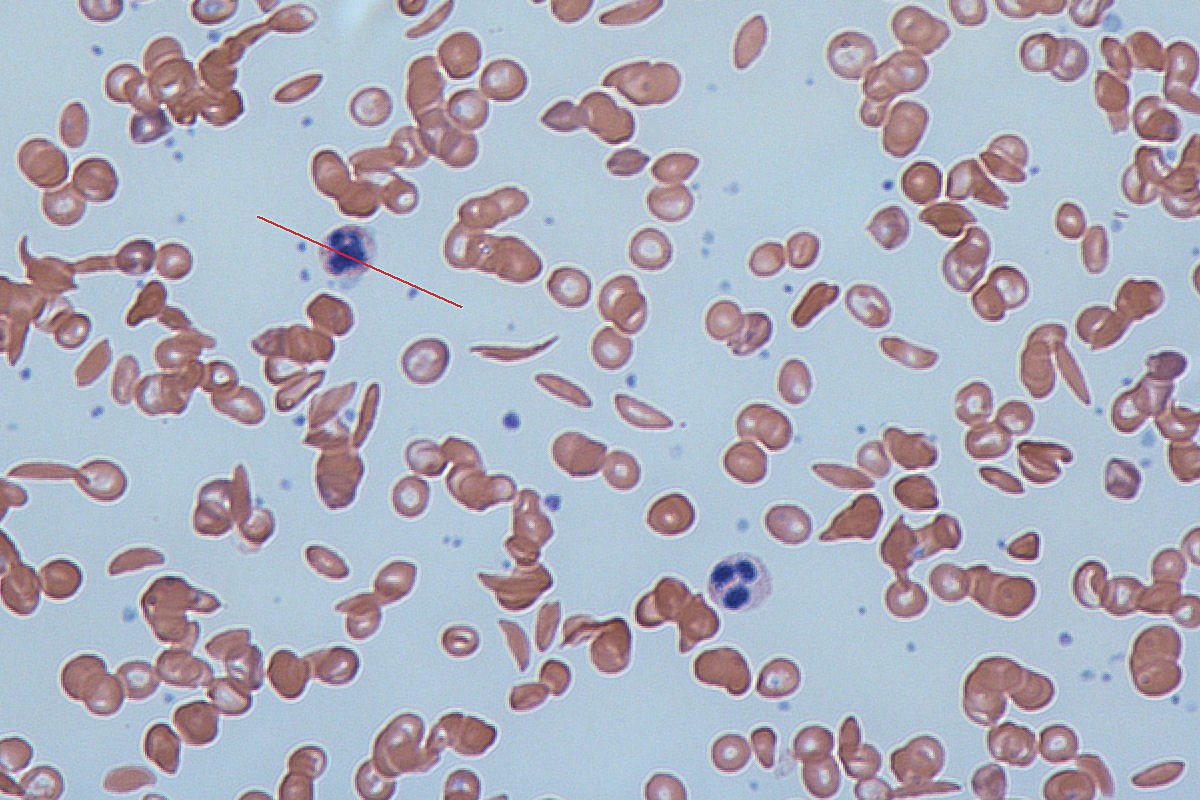STATEHOUSE REPORT | ISSUE 22.16 | April 21, 2023
NEWS: Survey to gauge statewide broadband needs
NEWS BRIEFS: S.C. Senate OKs $13 billion state budget
LOWCOUNTRY, Ariail: The meaning behind the announcement
COMMENTARY, Brack: State Democrats have a lot of work to do
SPOTLIGHT: S.C. Farm Bureau
MY TURN: Treatment of sickle cell disease should be a S.C. priority
FEEDBACK: Send us your thoughts
MYSTERY PHOTO: What’s the historic significance?
Survey to gauge statewide broadband needs

By Herb Frazier | When Mike Shealy drives the back roads of rural South Carolina, he smiles when he sees orange conduits sticking out of the ground. They are signals that new internet connections are spreading like weeds.
Shealy, who recently served as budget director for the S.C. Senate, often travels the state to meet with regional councils of governments to encourage elected leaders to support efforts to use state and federal government funds to bring high-speed broadband connections to underserved rural communities.

It’s estimated that more than 363,000 households in South Carolina lack internet connections, according to U.S Census data for 2016 to 2020. South Carolina is expected to spend $750 million over four years to connect the entire state, he said.
The nation’s economy has changed so much that governments must assist in making “digital inclusion” possible for all of the estimated 2 million households in South Carolina, Shealy told the board of directors of the Berkeley-Charleston-Dorchester Council of Governments (BCDCOG) meeting recently in North Charleston.
“We have reached the point that we have to provide this to everybody,” said Shealy, who works for the state Department of Administration as director of statewide leadership and special projects. “It is not an option anymore. It is the way we live, work and play.”
A statewide broadband needs survey is one of the first steps to access federal funding for internet expansion from the U.S. Department of Commerce, he said. The process also includes compiling comments from regional listening sessions on what citizens want from the technology.
He encouraged the COG’s members to take the survey and share it with their constituents before an August deadline.
“What we are doing is compiling all of this information that we will then present to the National Information and Technology Administration that is part of the Department of Commerce,” he said. Once the surveys and a planning process are done “then we will get the keys to unlock grants,” he said. Shealy works in collaboration with the S.C. Broadband Office.
300,000+ household lack internet connections
It’s estimated that more than 363,000 households in South Carolina lack internet connections, according to U.S Census data for 2016 to 2020. South Carolina is expected to spend $750 million over four years to connect the entire state, he said.
The money is to be used to subsidize the work of some 20 internet service providers that are laying a web of fiber optic cable to homes, libraries and technical colleges. Shealy said it is also important to provide digital training services to recently released prisoners so they can seek and gain employment. Money is also available to help low-income residents afford an internet service, obtain a device such as a laptop or smartphone and training on how to use it.
Charleston County lags in internet connections
Charleston County leads the state in the percentage of households – 93% – with computing devices, such as smartphones and laptops. But 20% of Charleston County households do not have internet subscriptions compared to 12% of the households in Greenville County and 15% in Richland County. Charleston County also leads in the digital gap over Berkeley and Dorchester counties, which report 17% and 16%, respectively, of households without an internet connection.
Shealy said the lower percentage of households without internet connections in mostly rural Berkeley and Dorchester counties is due to fewer internet services providers in those counties as compared to the more urban Charleston County.
He said it is a basic economic fact that companies will install more miles of fiber optic cable in areas where there are more potential customers. The digital gap in more densely populated counties, however, exists because residents might not be able to afford the service or they don’t understand the technology, he explained.
After Shealy finished his presentation to the regional COG the group’s board chairman Caldwell Pinckney Jr., a member of Berkeley County Council, reached out to shake his hand and to say he appreciates the work he’s doing. Pinckney told Shealy he represents Berkeley County, which is mostly rural, except for the fast-growing Cane Bay and Nexton communities.
A gap in broadband service “in rural areas is not a new phenomenon,” Pinckney said. “When it comes to those who are further away from the wheel they don’t seem to get all the grease they need, if any at all. People in rural Carolina and Berkeley County have always been behind the eight ball on this and a lot of other issues.”
Award-winning journalist Herb Frazier is special projects editor with the Charleston City Paper. Have a comment? Send to feedback@statehousereport.com
S.C. Senate OKs $13 billion state budget

Staff reports | The state Senate unanimously on Wednesday approved a $13 billion spending plan in what was characterized as an “unusually short debate lacking the typical back-and-forth” seen in most years.
In general, the Senate plan is similar to the one passed earlier by the House and includes state employee salary increases, a veterinary school at Clemson, a juvenile jail, a freeze to in-state tuition and help to pay for more rural schools.
The big differences with the House plan are the sizes of the state worker pay raises (the Senate plan spends $42 million more) and the Senate plan doesn’t include $200 million for bridge improvements.
In other recent news:
![]() Quinn pleads guilty to perjury, obstruction. Longtime S.C. Republican powerhouse political consultant Richard Quinn pleaded guilty April 19 to perjury and obstruction of justice charges tied to the years-long investigation. Quinn did not admit guilt, but agreed a jury would likely convict him.
Quinn pleads guilty to perjury, obstruction. Longtime S.C. Republican powerhouse political consultant Richard Quinn pleaded guilty April 19 to perjury and obstruction of justice charges tied to the years-long investigation. Quinn did not admit guilt, but agreed a jury would likely convict him.
S.C. disabilities agency reaches $250K settlement. As part of the settlement between Mary Poole and the Department of Disabilities and Special Needs, the department is paying Poole $250,000 to settle a 2-year-old lawsuit that accused commissioners of damaging her reputation with false explanations for her sudden firing.
Killer released early could go back to prison. A convicted killer released from prison 16 years early could go back to prison after the S.C. Supreme Court unsealed the secret order that allowed his release, according to The Post and Courier. S.C. Attorney General Alan Wilson, who submitted a request to have the order unsealed, argued the order broke state law that requires murderers to serve at least 30 years before release. The killer served 19 years.
S.C. gets closer to lethal injection secrecy. The S.C. House gave key approval Wednesday to allow the name of a company that sells drugs for lethal injection to remain anonymous, as well as members of the execution team.
Proposed S.C. bill would cut number of state’s school districts in half. The number of school districts in South Carolina could be nearly cut in half under a proposed bill at the Statehouse.
S.C. bill seeks to keep teachers in classroom, boost contract flexibility. A bill sent unanimously on Tuesday to the House Education Committee would make a professional teaching certificate permanent, eliminating the bureaucratic hurdles involved in renewing it every five years through the state Department of Education.
S.C. effort to legalize gambling on horse racing stalls. A bill which would have funded the state horse industry by legalizing and taxing online horse race wagering, was passed narrowly in the House earlier this month but has not been taken up in the state Senate.
The meaning behind the announcement

U.S. Sen. Tim Scott, R-S.C., has been so much in the news of late with the announcement that he’s formed a presidential exploratory committee that it got the attention of cartoonist Robert Arial, who offered this take. Love the cartoon? Hate it? What do you think: feedback@statehousereport.com.
State Democrats have a lot of work to do

By Andy Brack, editor and publisher | As South Carolina Democrats prepare to hold their state convention in Columbia April 28, they face a stark future: They could be out of power for years unless they shake up things a lot.
 In the 2022 elections, they captured no statewide constitutional offices and lost enough seats in the S.C. House to give Republicans a supermajority that is so big that they don’t need to listen to Democrats at all. In 2024, the Senate is poised to grow similarly — unless Democrats wake up.
In the 2022 elections, they captured no statewide constitutional offices and lost enough seats in the S.C. House to give Republicans a supermajority that is so big that they don’t need to listen to Democrats at all. In 2024, the Senate is poised to grow similarly — unless Democrats wake up.
To understand how serious the challenge to the state Democratic structure is, all you have to do is spend a few minutes talking with S.C. Sen. Mia McLeod, a lifelong Democrat who dumped the party in January after a frustrating 2022 bid for governor in which she was the first Black woman to run for the office. A state senator, she now identifies as an independent, but still caucuses with the Dems.
“I didn’t take issue with my [Democratic] colleagues in the Senate,” she said. “I took issue with the state party.”
In a Jan. 10 message to supporters, McLeod detailed how she struggled with state party leaders for years to try to get them to focus on and help people of all colors and creeds in the district she represents. The party establishment, she said, has not made any significant changes or won a gubernatorial race in 20 years.
“If the definition of insanity is doing the same thing year after year, election after election, and expecting a different result, then the S.C. Democratic Party is the poster child for what a losing strategy on repeat looks like,” she wrote.

While party leaders bristled then and now at McLeod’s criticisms saying her gubernatorial campaign was flawed, the Democratic establishment needs to pay attention if it wants to remain relevant. It needs to focus on issues that make a difference to base Democratic voters, many of whom are Black like McLeod. They need a clear strategy to ensure that redistricting is fair and issues like wealth and poverty, opportunity for all, access to health care and strengthening of democracy are front and center.
In an interview this week, McLeod said her decision to become an independent was liberating because it allows her to act independently as she always has tried to do.
“What I’m not willing to do is stay on a sinking ship and act like I don’t know that it’s sinking,” she said.
And while she hopes state Democratic leaders get their structural act together to help regular voters, she’s cautious.
“As much as I hope the party will take a new direction and do something differently, I don’t expect that to happen overnight,” she said. “There are great, amazing people on both sides of the aisle.
“I have come to know and love so many Democrats who are in it for the right reason and for that reason, I’m going to continue to support … the majority of whom will be running as Democrats. I don’t feel like I’m at odds with the people of the Democratic Party. They are who I am fighting for.”
Will she ever return to the party? Maybe, because that’s where her heart is: “I would love to have the opportunity to return to the Democratic Party when the Democratic Party is aligned with the people.”
But first, the party has to get its act together better. And they’ll have a chance to hit the restart button in Columbia on April 28.
Andy Brack, recognized in 2022 as the best columnist in South Carolina, is editor and publisher of Statehouse Report and the Charleston City Paper. Have a comment? Send to: feedback@charlestoncitypaper.com.
S.C. Farm Bureau
 Statehouse Report is provided for free to thousands of subscribers thanks to the generosity of our underwriters. Today we shine a spotlight on our newest underwriter, S.C. Farm Bureau. It is a grassroots, non-profit organization that celebrates and supports family farmers, locally-grown food and rural lands through legislative advocacy, education and community outreach.
Statehouse Report is provided for free to thousands of subscribers thanks to the generosity of our underwriters. Today we shine a spotlight on our newest underwriter, S.C. Farm Bureau. It is a grassroots, non-profit organization that celebrates and supports family farmers, locally-grown food and rural lands through legislative advocacy, education and community outreach.
S.C. Farm Bureau’s alliance of nearly 100,000 members includes everyone from foodies and fishermen to lawyers, restaurateurs, entrepreneurs, community leaders, and of course, farmers. By connecting farmers to the larger community, the organization cultivates understanding about agriculture’s importance to our local economies. The S.C. Farm Bureau explains its mission: “We deepen our collective knowledge of who, where and how food grows. We empower people to make informed choices. We grow mutually-beneficial relationships. And, we ensure the future of the family farms, locally-grown food and the rural South Carolina lands we love.”
- To learn more about S.C. Farm Bureau’s programs, click here.
- To view media and publications, click here
- For policy and legislation, click here.
Treatment of sickle cell disease should be a S.C. priority

By Rhonda Young and Jack Bernard, special to Statehouse Report | Sickle cell disease (SCD) is a genetic disorder that affects millions of people worldwide. The disease is caused by a mutation in the hemoglobin gene, which leads to the formation of abnormal hemoglobin molecules. These molecules can cause red blood cells to become stiff and sickle-shaped, leading to a range of health complications.


The sickle cell trait is in the DNA of one of 13 Black babies born in the United States. The Centers for Disease Control and Prevention (CDC) indicates that there are 100,000 Americans who are stricken with SCD, including one out of every 365 African Americans
The CDC’s Sickle Cell Data collection program is active in all of the Southern states surrounding South Carolina. However, due to lack of adequate national CDC funding, it is not operational in South Carolina.
The SCD collection system compiles data regarding Americans with sickle cell to examine “long-term trends in diagnosis, treatment, and healthcare access” and to determine patient needs as well as the barriers blocking treatment. The end result is the enactment of actions which increase appropriate utilization of services resulting in lower mortality and morbidity rates.
Living with SCD can be challenging for both patients and their families, as can be readily seen when looking at videos of people with the illness.
Here are some of the most significant challenges associated with the condition:
- Pain management: Sickle cell disease can cause severe pain episodes, known as sickle crises. These episodes can last for days or even weeks and can be debilitating. Managing pain is a significant challenge for patients, as traditional pain medications may not be effective. Patients may require hospitalization and intravenous pain medications to manage their symptoms.
- Increased risk of infections: People with sickle cell disease are more susceptible to infections due to their weakened immune systems. They are at increased risk of developing pneumonia, meningitis and other serious infections. Vaccinations and regular check-ups with a health care provider are essential to help prevent infections.
- Limited treatment options: Currently, there is no cure for sickle cell disease. Treatment options are limited to managing symptoms and complications. Blood transfusions, bone marrow transplants and hydroxyurea are some of the treatments used to manage the disease. However, these treatments can be costly and may not be accessible to all patients.
- Stigma and discrimination: People with sickle cell disease may face stigma and discrimination due to misconceptions about the condition. Some people believe that the disease is contagious or that it only affects certain racial or ethnic groups. This can lead to social isolation and discrimination in healthcare settings.
- Mental health challenges: Living with a chronic illness like sickle cell disease can take a toll on a person’s mental health. Patients may experience anxiety, depression, and other mental health challenges. Access to mental health services and support is essential to help patients cope with the emotional impact of the disease.
In conclusion, sickle cell disease presents significant challenges for patients and their families. Pain management, increased risk of infections, limited treatment options, stigma and discrimination, and mental health challenges are just some of the issues that patients may face. Raising awareness about sickle cell disease and improving access to healthcare services and support can help address these challenges and improve the quality of life for people living with this condition.
One way to partially accomplish this goal is to expand the SCD collection program into South Carolina. In neighboring Georgia, the program has resulted in the identification of underserved SDC areas and the training of providers to appropriately treat these patients. The same must be done in South Carolina via expansion of CDC funding.
Rhonda Young is the executive director of the L.D. Barksdale Sickle Cell Anemia Foundation, which provides advocacy, education and supportive services for 15 counties in upstate South Carolina. Jack Bernard is the former director of health planning for Georgia and a retired senior executive with national health care corporations. Have a comment? Sent to: feedback@statehousereport.com.
Send us your thoughts
We encourage you to send in your thoughts about policy and politics impacting South Carolina. We’ve gotten some letters in the last few weeks – some positive, others nasty. We print non-defamatory comments, but unless you provide your contact information – name and hometown, plus a phone number used only by us for verification – we can’t publish your thoughts.
Have a comment? Send your letters or comments to: feedback@statehousereport.com. Make sure to provide your contact details (name, hometown and phone number for verification. Letters are limited to 150 words.
What’s the historic significance?

This old building might look like it’s falling down, but there’s a historic significance for it. What? And where is it? Send us your guess – as well as your name and hometown – to feedback@statehousereport.com.
 Last week’s photo, “Wooden building,” showed a rice-threshing mill at Chicora Wood plantation in Georgetown County.
Last week’s photo, “Wooden building,” showed a rice-threshing mill at Chicora Wood plantation in Georgetown County.
David Lupo of Mount Pleasant shares more: “During the 19th century, Chicora Wood (called Mantanza Plantation during the earlier part of the century) was the home of Robert Francis Withers Allston. Immediately before the Civil War, Allston’s rice plantations produced as much as 1.5 million pounds of rice annually and depended upon the labor of hundreds of enslaved persons. During his lifetime, Allston also served in the SC House and Senate and as the 67th Governor of South Carolina.”
Others who correctly identified the photo were Frank Bouknight of Summerville; Penny Forrester of Tallahassee, Fla.; Allan Peel of San Antonio, Texas; George Graf of Palmyra, Va.; Jay Altman and Elizabeth Jones, both of Columbia; and Pat Keadle of Wagener.
>> Send us a mystery picture. If you have a photo that you believe will stump readers, send it along (but make sure to tell us what it is because it may stump us too!) Send to: feedback@statehousereport.com and mark it as a photo submission. Thanks.
- ORDER NOW: Copies are in Lowcountry-area bookstores now, but if you can’t swing by, you can order a copy online today.
- Now available as an e-book!
ABOUT STATEHOUSE REPORT
Statehouse Report, founded in 2001 as a weekly legislative forecast that informs readers about what is going to happen in South Carolina politics and policy, is provided to you at no charge every Friday.
- Editor and publisher: Andy Brack, 843.670.3996
Donate today
We’re proud to offer Statehouse Report for free. For more than a dozen years, we’ve been the go-to place for insightful independent policy and political news and views in the Palmetto State. And we love it as much as you do.
But now, we can use your help. If you’ve been thinking of contributing to Statehouse Report over the years, now would be a great time to contribute as we deal with the crisis. In advance, thank you.
Buy the book
Now you can get a copy of editor and publisher Andy Brack’s We Can Do Better, South Carolina! ($14.99) as a paperback or as a Kindle book ($7.99). . The book of essays offers incisive commentaries by editor and publisher Andy Brack on the American South, the common good, vexing problems for the Palmetto State and interesting South Carolina leaders.
More
- Mailing address: Send inquiries by mail to: P.O. Box 21942, Charleston, SC 29413
- Subscriptions are free: Click to subscribe.
- We hope you’ll keep receiving the great news and information from Statehouse Report, but if you need to unsubscribe, go to the bottom of the weekly email issue and follow the instructions.
- Read our sister publication: Charleston City Paper (every Friday in print; Every day online)
- © 2023, Statehouse Report, a publication of City Paper Publishing, LLC. All rights reserved.















 We Can Do Better, South Carolina!
We Can Do Better, South Carolina!